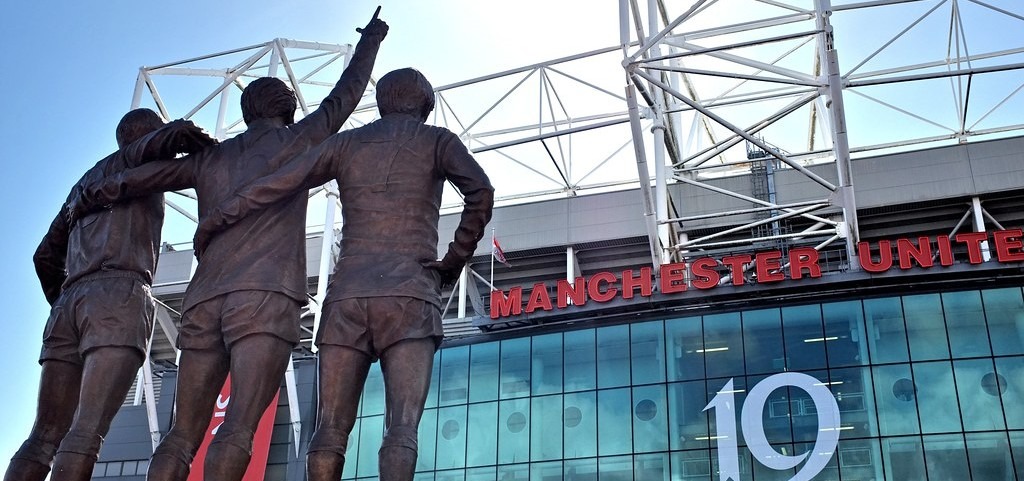United’s collapse: The struggles behind their worst season in the Premier League era
In a fitting end to a woeful season, Manchester United lost the Europa League final to Tottenham Hotspur. Despite registering 16 shots and dominating for large spells of the game, they were familiarly beaten by their own toothlessness in front of a goal. United have managed just 44 goals in the Premier League this season, making them statistically the fifth worst attack in the league. They’ve averaged 1.57 expected goals for every 90 minutes played in the league, but have only managed to score 1.16 goals per 90, pointing to a squad that creates enough chances to win games but consistently fails to convert. As a result, they’ve lost 18 Premier League games this season, including nine at Old Trafford. What was once a fortress is now a revolving door for visiting teams and the daunting atmosphere that Sir Alex Ferguson instilled in the club has long faded.
It is hard to see how Manchester United have even managed to score 44 goals in the league
If United fans were disappointed under the management of Erik Ten Hag, whose record lowest finish was eighth, then this season plunged deeper into unprecedented mediocrity. By finishing 15th with just 42 points, this season records as the club’s worst-ever Premier League campaign. United’s discouraging performances this season have put pressure on Ruben Amorim, who joined the club in November of 2024. But for the club to prematurely sack Amorim they would be making the same mistake that they made with Erik Ten Hag and even with Ole Gunnar Solskjær. The focus of football failures is all too often on managerial performance, but Manchester United have suffered for too many years and under too many managers to not criticise player performance.
It may seem reductive to pin the team’s struggles on only a few culprits, but to overlook the woeful performances of Rasmus Hojlund would be a serious oversight. For a Manchester United striker with 22 starts, Hojlund’s total of four goals is more than disappointing. The £64 million pound striker has only managed 12 shots on target across the entire league season, highlighting an inability to get involved and influence the game. Simply, Rasmus Hojlund is not suitable for the tactics which Ruben Amorim wishes to play with. Alejandro Garnacho, on the other hand, is perhaps too involved in games. The Argentinian winger has registered 84 shots in the Premier League this season, but has only managed to score six of them.
It is hard to see how Manchester United have even managed to score 44 goals in the league – much of which is down to Bruno Fernandes. The Manchester United skipper has managed eight goals and ten assists in 36 games. His direct involvement in 41% of the team’s goals means that he holds more goal contributions than Hojlund, Garnacho and Zirkzee combined. Another bright spark has been that of Amad Diallo, who also has 14 goal contributions in 26 Premier League games. The duo have injected moments of quality into a lacklustre side, and it would make sense to make them the centre of any rebuild this summer.
United’s loss in the final represents an opportunity to deal with the deep-cut flaws of the club
Yet, reports have linked Bruno Fernandes with a £100m move to the Saudi league. Not only him, but it looks likely that the squad will suffer a mass reshuffling in order to make space and build funds for an overhaul. Evans, Lindelof and Eriksen are all out of contract, whilst Rashford, Antony and Sancho look to make their loan departures permanent. Additionally, Casemiro, Garnacho, Malacia and Mainoo have been linked with moves away from the club, meaning that 8-11 departures are rumoured this summer. This would provide the funds for Amorim to sign players who would be more suitable for his style. United have reportedly began this process early, negotiating a fee with Wolverhampton Wanderers for Matheus Cunha, who has flourished this season with 21 goal contributions.
Manchester United will not play European football next season, meaning that not only will their own players be less motivated to stay, but the club’s pulling power could be compromised. Yet, the lack of continental football allows the club to focus entirely on the Premier League and cup competitions without the physical toll which the tight scheduling of European football will have. Thus, by losing the Europa league final and avoiding Champions League qualification, Manchester United have avoided the situation which Spurs face. Spurs have also had a woeful season, but winning the Europa League and thus achieving European qualification moulds a jubilant facade over the practicalities of a poor season. As such, United’s loss in the final represents an opportunity to deal with the deep-cut flaws of the club, and perhaps should not be focused on, when Manchester United have already been losing all season.

Comments (1)
Have loved watching Man United this season, great insight.